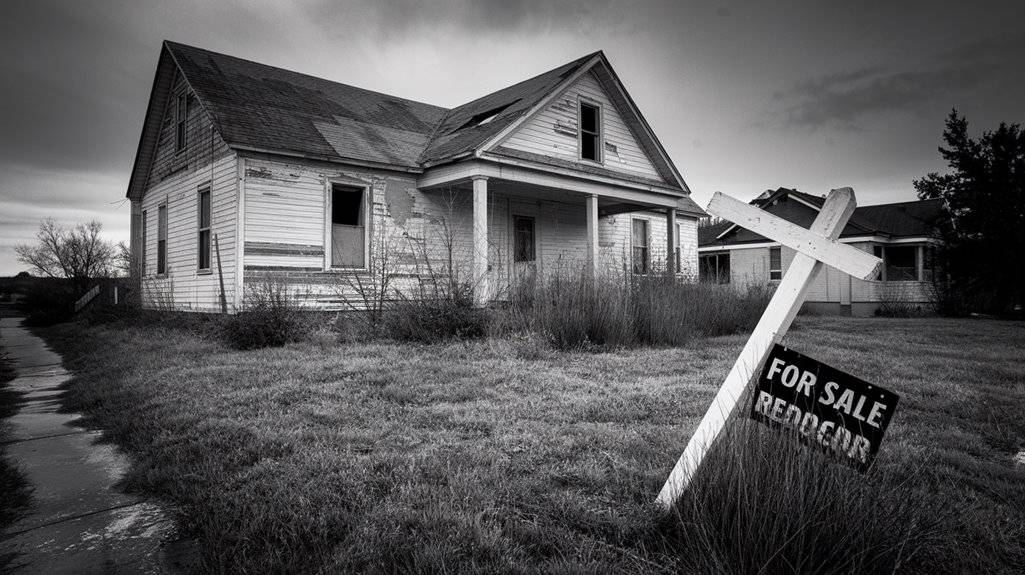Facing foreclosure in Missouri can be a daunting reality for many homeowners. Missed mortgage payments often trigger this stressful process. The fear of losing your home looms large, creating uncertainty. It’s a situation that demands immediate attention and clear understanding to navigate effectively.
The foreclosure process moves fast, piling on pressure with each passing day. Default notices arrive, signaling urgent action is needed. Ignoring them worsens the situation, risking your home. Emotional and financial tolls can feel overwhelming quickly. But there’s hope if you act promptly and stay informed.
Understanding the foreclosure process in Missouri is your first step to protection. Knowledge empowers you to explore options and fight back. This guide will walk you through every critical stage. Stay with us to uncover solutions and safeguard your home. This blog offers the help you need.
Key Takeaways
- Missouri foreclosure begins with default from missed mortgage payments, often due to financial hardship.
- A Notice of Election and Demand (NED) is issued, requiring full repayment within 10 days.
- Sale preparation involves setting a date 20-30 days after NED and advertising for 20 days.
- Right to Cure allows reinstating the mortgage by paying overdue amounts before the sale.
- Foreclosure sale is a public auction, followed by a redemption period or eviction if unpaid.
A Detailed Breakdown of Foreclosure Process in Missouri

If you’re facing foreclosure in Missouri, understanding the process is crucial to managing your options. You’ll encounter key steps like Default and Initial Notification, Notice of Election and Demand (NED), Sale Date and Notification, the Right to Cure, and the Rule 120 Hearing.
Let’s break down each stage to ensure you’ve got a clear grasp of what to expect. Additionally, if you’re looking for a way out, consider that some companies buy houses fast in any condition, offering a potential solution to avoid the stress of foreclosure.
1. Default and Initial Notification
The foreclosure process in Missouri starts when you miss mortgage payments, called default. This breach allows lenders to act. Default often happens due to job loss or sudden costs. Lenders may contact you through calls, emails, or letters. They will notify you about the missed payment and push for a solution.
If you act quickly, you can talk to your lender about options. Payment plans might help resolve the issue. Ignoring this won’t work and could worsen the risk. Staying active now is key to stopping further steps. This early stage offers a chance to fix the default.
2. Notice of Election and Demand (NED)
The Notice of Election and Demand (NED) is a key step in Missouri’s foreclosure process. It shows the lender’s plan to foreclose due to missed payments. This legal document lists the debt you owe. It also demands full repayment to stop further action.
If you can’t pay the debt, the foreclosure moves faster. This can harm your credit and property rights. You often have just 10 days to respond in Missouri. Acting quickly is vital to negotiate or fix the default. Ignoring the NED could lead to losing your home.
3. Sale Date and Notification
After the Notice of Election and Demand, Missouri’s foreclosure process moves to setting the sale date. The trustee must schedule the sale, usually within 20 to 30 days. This step ensures everyone knows about the upcoming auction.
Sale advertising is crucial and happens in a local newspaper. The sale date appears there for at least 20 days. If you miss this, you might lose important details.
Notification can also come through other ways. You might get direct mail or see notices on the property. If these arrive, read them carefully to stay informed.
Stay alert and act quickly to handle the situation. If you track notifications, you’ll understand your timeline. Knowing your options can help you decide the next steps.
4. Right to Cure
Missouri law offers a vital chance called the “Right to Cure” during foreclosure. This lets you stop foreclosure by paying overdue amounts and fees before the sale. If you act fast, you can reinstate your mortgage. Timing is key to save your home.
You can also ask for Cure Extensions if gathering funds is hard. These may give extra time, though they’re not assured. It depends on your lender’s rules. Be mindful of Financial Impacts like late fees. Interest can grow your debt a lot. Stay active, talk to your lender, and explore options. This helps reduce costs and protect your property.
5. Rule 120 Hearing
A Rule 120 Hearing is a key step in Missouri’s foreclosure process. It reviews if the foreclosure is legally valid. You can challenge the lender’s claims during this hearing. Prepare well with strong evidence and legal help. If you act wisely, you might protect your property.
At the hearing, you could try mediation to negotiate with the lender. This may help stop the foreclosure. Stay updated on Missouri’s recent legal changes for better options. The court will check all papers and arguments carefully. If you stay proactive, your chances improve significantly.
6. Foreclosure Sale
Handling a foreclosure sale in Missouri requires your full focus. It is the last step in the foreclosure process. You must grasp the Auction Logistics for a public sale. This sale often happens at the county courthouse. The trustee or sheriff leads the auction every time. If you can’t attend, send a representative to bid. Check the sale notice for exact dates and times. Ensure you know the location to avoid missing it.
Bidder Eligibility rules are important to follow in Missouri. Anyone with enough money can usually bid. However, a deposit is often required at the sale. This deposit is typically 5-10% of your bid amount. It must be in cash or certified funds only. If you plan to bid, prepare well in advance. Remember, Missouri foreclosure sales are final once completed.
7. Post-Sale
After a foreclosure sale in Missouri, understanding the next steps is important. This phase matters for your rights and duties. Know about the Redemption Period, a time to reclaim your property. If you pay the full debt plus costs, you might get it back. However, this depends on specific Missouri laws and conditions.
If redemption isn’t an option, prepare for the Eviction Process. The new owner may start eviction if you don’t leave. You will get a formal notice to vacate the property. If you ignore it, legal action could follow. Act quickly to protect your interests during this tough time.
Can You Sell a House in Foreclosure in Missouri?

Yes, you can sell a house in foreclosure in Missouri. You must act quickly to succeed. Selling often means a Short Sale, where the home sells for less than owed. Your lender must approve this type of sale. If you list early, you might attract buyers before the auction.
Market timing plays a big role in this process. Negotiate with your lender to delay foreclosure proceedings. If they agree, you gain time to close the deal. Be honest with buyers about the foreclosure status. This honesty helps avoid future legal problems.
Consulting a real estate expert is a smart move. They can guide you through Missouri’s specific laws. An attorney could also provide valuable advice. If you wait too long, options may disappear. Act now to protect your interests. Consider reaching out to local experts who can provide fair cash offers to help navigate this challenging situation.
Conclusion
Understanding foreclosure in Missouri can help you protect your home. If you act early, you can explore options. Knowledge of the process empowers you to make informed decisions.
If you face foreclosure, consider selling your home quickly. We buy houses for cash at Freedom Path Investors. This option could help you avoid the stress of losing your property.
Should you need assistance, reach out to us today. We at Freedom Path Investors are ready to help. Contact us now to discuss your situation.







